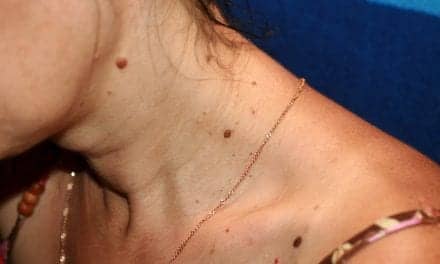The American Skin Association launches its Seven Principles for a Lifetime of Healthy Skin, part of a worldwide educational effort to increase understanding of the importance of skin and the assurance of its health throughout one’s lifetime.
The principles are as follows:
- Minimize exposure to UV light. Limit time outdoors between 10 am and 4 pm, apply broad spectrum sunscreen daily, wear sun protective clothing, and avoid tanning beds and similar artificial tanning devices entirely.
- Maintain a healthy lifestyle that includes regular water intake, sleep and exercise. Do not smoke.
- Visit your dermatologist once a year or as needed.
- Examine your skin daily, and report concerning changes in skin condition and/or color to your dermatologist or Health Care Professional as soon as possible.
- Hydrate your skin daily, especially after bathing or showering.
- Maintain good hygiene for skin, hair and nails by giving gentle and constant attention to avoid irritation.
- Immediately attend to wounds. To avoid infection and scarring, never pick or squeeze blemishes.
These principles were developed as the result of input from more than 800 respondents (dermatologists, family practitioners, and pediatricians) to a survey, compiled by the American Skin Association and Derm101, regarding the most important tips for a lifetime of healthy skin. A consensus of members of the ASA Education Council also contributed to the principles, according to a media release from the American Skin Association.
“The Seven Principles provide guidance for today’s young as well as address the more acute needs of today’s old,” says Dr Jeannette Jakus of SUNY Downstate Medical Center, in the release. “Nearly half of all primary care visits are due to skin disorders, and this burden grows significantly as we age. The Seven Principles are tools that everyone can use, at every stage of life, that will improve our quality of life today and as we age, and reduce healthcare costs for years to come.”
The educational effort begins with the inclusion of skin health in the World Health Organization’s new Health and Aging Strategy, which explains that skin diseases — including skin cancers —not only have a significant effect on quality of life, they can lead to additional health issues in both children and adults, per the release.
“Our skin is our largest organ and protects us from harmful bacteria, pollution, and toxins in the environment,” explains Dr Jean L. Bolognia, professor of dermatology at Yale School of Medicine. “As we age, those defenses weaken, making us more susceptible to infection, pain, and hospitalization. The need to establish skin healthy behaviors and protect our skin throughout our lives is more critical today than ever before.”
“A child born today will live to be 100 years old,” adds Dr David A. Norris, chair of the Department of Dermatology at the University of Colorado School of Medicine and the newly elected president of the ASA, in the release. “Our expected 21st century longevity creates a whole new set of imperatives for how we treat our skin to ensure that it lasts for 100 years or more.”
[Source(s): American Skin Association, PR Newswire]



